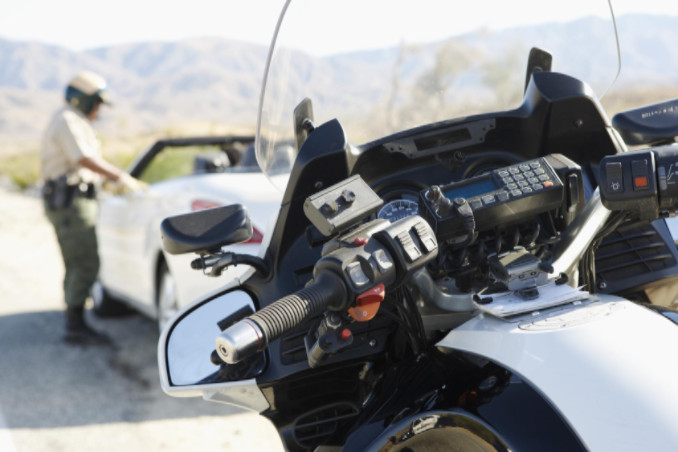
What To Say (and Not Say) When Pulled Over by Police in Houston
Understand your rights during a traffic stop in Texas and how to avoid incriminating yourself
With so much in the news recently about police brutality, it’s natural to feel nervous when you see those flashing lights in your rearview mirror—even if you don’t think you did anything wrong. A routine traffic stop can sometimes be unpredictable, and what you say (or don’t say) can make a big difference in how things play out.
Do you have to answer when an officer asks if you know why you were pulled over? Are you required to tell them if you have a gun in the car? Can you refuse to step out of your vehicle?
These are questions that can catch people off guard, and saying the wrong thing—even by accident—could land you in serious legal trouble.
In this guide, we’ll break down what you’re obligated to tell law enforcement in Texas, when you can refuse to answer their questions, and how to protect your rights when interacting with police.
If you’ve been arrested during a traffic stop in Texas, contact skilled Houston criminal defense attorney Neal Davis. With over 25 years of experience handling complex cases that involve DWI charges, drug possession, and resisting arrest, he knows how to challenge unlawful traffic stops, fight back against weak evidence, and protect your rights every step of the way.
Contact the Neal Davis Law Firm today for a confidential consultation and get the defense you deserve.
What should you say when pulled over?
Getting pulled over is stressful, and it’s easy to feel pressured into saying more than you should. The best approach? Be respectful, stay calm, and know when to keep quiet.
So, what questions do you have to answer at a traffic stop?
Well, you’re legally required to give your name and hand over your driver’s license, registration, and proof of insurance when asked. In Texas, if the officer asks if you have a gun in the car, you do have to answer truthfully. However, in some instances, you may not be required to offer that information up voluntarily (we’ll break this down more below).
Aside from that, you don’t have to answer any other questions. Thanks to the Fifth Amendment of the U.S. Constitution, you have constitutional rights as a defendant, including the right to remain silent to avoid saying anything that could be used against you. This applies whether you’re dealing with local police, state troopers, or even federal law enforcement.
Remember, you don’t have to explain yourself or try to justify anything if an officer starts asking questions like: Where are you headed? Have you been drinking? Do you have any illegal drugs in the car?
Instead, stay polite but firm and simply say, “I don’t want to answer any questions without speaking to a lawyer.”
Some people worry that refusing to answer questions might make them look guilty. The reality is that you have the right to remain silent, and oftentimes, giving up that right does far more harm than good.
Can Police Search My Car Without a Warrant?
Learn when police can legally search a car without getting a warrant in Texas.
FAQs about legal rights during Texas police stops
What should you say if a cop asks, “Do you know why I pulled you over?”
If a cop asks if you know why they pulled you over, it’s a trick question—no matter how you answer, it could be used against you.
For example, if you were pulled over for driving 10 miles over the speed limit and you answer the question by saying, “No, I have no idea,” the officer might note that you were unaware you were speeding. If you guess and say, “I might have been going a little fast,” you’ve just admitted to something they might not have even had proof of.
The best response? Don’t guess. Instead, say, “Please tell me why I was stopped.” This way, you’re not admitting to anything or giving them evidence to use against you.
Is it legal for a cop to ask where you are going?
Yes, a police officer can ask you where you’re going during a traffic stop—but you don’t have to answer.
Officers often ask this question to gather more information or look for inconsistencies in your story. They might also be gauging your reaction—if you hesitate, change your answer, or appear nervous, they could see that as a sign that you’re hiding something, even if you’re not.
In some cases, they may use your response to justify further questioning or even a search of your vehicle. That’s why it’s best to avoid giving unnecessary details that could be misinterpreted.
Do you have to tell the police you have a gun in the car in Texas?
The answer to this depends on whether you have a license to carry (LTC) or not.
- If you have an LTC, you are legally required to inform the officer that you are carrying a firearm. Texas law also states that LTC holders must show officers their driver’s license and LTC if they have a gun in the car.
- If you don’t have an LTC, you are only legally required to tell the officer about the firearm if they ask. However, it may be a good idea to disclose this information voluntarily to avoid potential issues.
If you need to inform the officer that you have a firearm, keep your hands visible on the steering wheel and never make sudden movements or reach for the gun or glove compartment.
Can you tell a cop to stop talking to you?
You can’t stop a cop from questioning you, but you don’t have to answer their questions. While they’re technically allowed to ask whatever they want, you have the right to remain silent. If you don’t want to talk, just say, “I don’t want to answer any questions without a lawyer.”
In some cases, you may have to repeat this multiple times if pressed to answer additional questions. Always try to remain courteous and calm to prevent the situation from escalating.
Can you refuse to exit your vehicle?
In most cases, no, you cannot legally refuse to exit your vehicle if a police officer orders you to do so. In two separate cases, Pennsylvania v. Mimms and Maryland v. Wilson, the U.S. Supreme Court ruled that officers have the right to ask both drivers and passengers to step out of the car during a traffic stop for safety reasons.
You can still assert your rights by saying, “I’m complying, but I do not consent to any searches.” If you believe the officer had no valid reason to stop or detain you, don’t argue on the spot—fighting it in court is a much better option.
10 Biggest Mistakes to Avoid in Your Texas Criminal Case
Avoid making these common mistakes that could lead to charges or a conviction in your Texas criminal case.
What not to do when getting pulled over
If you get pulled over in Texas, avoid these common mistakes to keep the situation from spiraling and avoid being arrested:
- Don’t make sudden movements. Keep your hands visible on the steering wheel and wait for instructions before reaching for anything. This includes your license and registration.
- Don’t argue or get confrontational. Even if you feel the stop is unfair, arguing with the officer will usually only make things worse.
- Don’t consent to a search. If an officer asks to search your car, you can say, “I do not consent to a search.” They may still search, but this statement could help you later in court.
- Don’t lie to the police. If you choose to answer questions, be truthful. Lying to an officer can lead to additional charges.
- Don’t use your phone. Avoid using your phone, even to call a lawyer, unless the officer specifically says you can do so.
- Don’t drive away before the officer gives you permission. This is considered fleeing and can have serious consequences.
- Don’t resist arrest. If you are placed under arrest, always cooperate peacefully.
If a traffic stop leads to an arrest, it’s crucial to understand your rights during a police interrogation. Remember, police are not legally allowed to question you without an attorney if you request one.
Arrested after a police stop in Houston? We can help!
If you’re arrested during a traffic stop or taken in for questioning by police for a suspected crime in Texas, the Neal Davis Law Firm can ensure you’re treated fairly and your rights are protected. Neal Davis is a highly respected and experienced Houston criminal attorney who has spent more than two decades helping people facing charges in Texas get their cases dropped or dismissed.
If you’ve been charged with a crime in Bellaire, Memorial, The Woodlands, Galveston, or anywhere else near Houston, contact the Neal Davis Law Firm today for a confidential consultation.
References
Maryland v. Wilson, 519 U.S. 408 (1997). (n.d.). Justia Law. https://supreme.justia.com/cases/federal/us/519/408/
Pennsylvania v. Mimms, 434 U.S. 106 (1977). (n.d.). Justia Law. https://supreme.justia.com/cases/federal/us/434/106/


